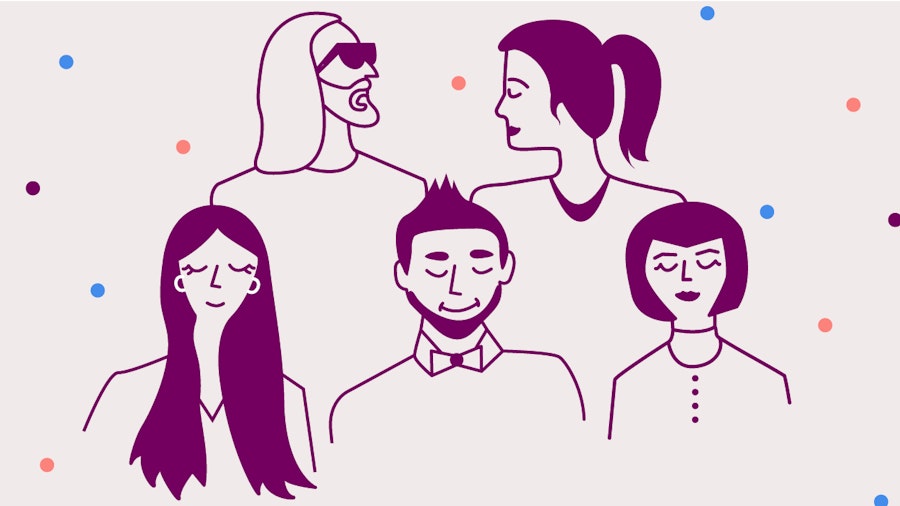5 Reasons to Use Birth Control (that aren't Preventing Pregnancy)
1. Using birth control for acne
Did you know there’s a link between your skin and your cycle? Period skincare can be more involved for those of us who are prone to breakouts. However, acne can be controlled by some types of hormonal birth control due to the synthetic estrogen that’s used in combined birth control pills.
Whether it’s a long-term or short-term solution, using birth control for acne is an individual choice, and only you will know if it’s the right option for you. Talk to your healthcare professional for more info on using birth control to help manage acne.
2. Using birth control for STI prevention
Sexually transmitted infections can be a worry for anyone who is sexually active. Condoms are a type of birth control that work as a barrier method (i.e. they stop the sperm and egg from meeting), this barrier approach also means they can stop the spread of STIs.
There are two types of condom, the external (male) condom that's worn on the penis, and the internal (female) condom that's worn inside the vagina. Another great thing about condoms, is they are an over-the-counter birth control option, meaning you don’t need a prescription to get hold of them. In fact, you don’t even need to leave your house to get hold of them as you can order condoms online for home delivery.
3. Using birth control for period pain
Many of us are all too familiar with the regular pain of period cramps and the difficulty of having a heavy flow. Certain types of hormonal birth control can help regulate periods or even stop them altogether. Long-acting birth control options, like the hormonal IUD or birth control implant, can stop periods altogether. You can also stop periods by regularly taking the birth control shot and, depending on your prescription, some birth control pills can either regulate flow or stop periods altogether.
Be aware that certain types of birth control, such as the copper IUD can cause heavier bleeding and worsen cramps for some individuals. If you’re looking to regulate your period symptoms or treat a cycle condition such as PCOS or endometriosis by using hormonal birth control, consult with a healthcare professional to get advice on the options that might best suit you.
4. Taking birth control for PMDD
A severe form of PMS (premenstrual syndrome), PMDD (premenstrual dysphoric disorder) can make the latter part of the menstrual cycle difficult for some. Like PMS, PMDD can manifest with both physical and emotional symptoms, but these tend to be more intense and can have an impact on day-to-day life. For some, PMDD can cause extremely low mood and/or suicidal thoughts. If this is something that affects you or someone you know in the US, the National Suicide Prevention Lifeline is always here for those who are affected. Readers in the UK can get support with PMDD from Mind.
While there are ways to manage PMDD, such as talking treatments and lifestyle changes, some may choose to take hormonal birth control to regulate the hormonal changes that cause this debilitating disorder. If you think you might be suffering from PMDD, consult with your doctor to discuss diagnosis and treatment options.
5. Using birth control to learn more about your body
Our list is nearly over, but we want to highlight one last reason to use birth control, and that’s the importance of education. You might not immediately think that a contraceptive method can teach you more about your body, but that’s where Natural Cycles comes in. As well as being a hormone-free birth control method, Natural Cycles adapts to your unique cycle and has a handy tracking feature, so you can monitor symptoms such as pain, mood swings, sex drive, and more.
The first FDA cleared birth control app, Natural Cycles is 100% hormone-free and tailored to you. Learn more about how Natural Cycles works or download the app to get started straight away.
Did you enjoy reading this article?
